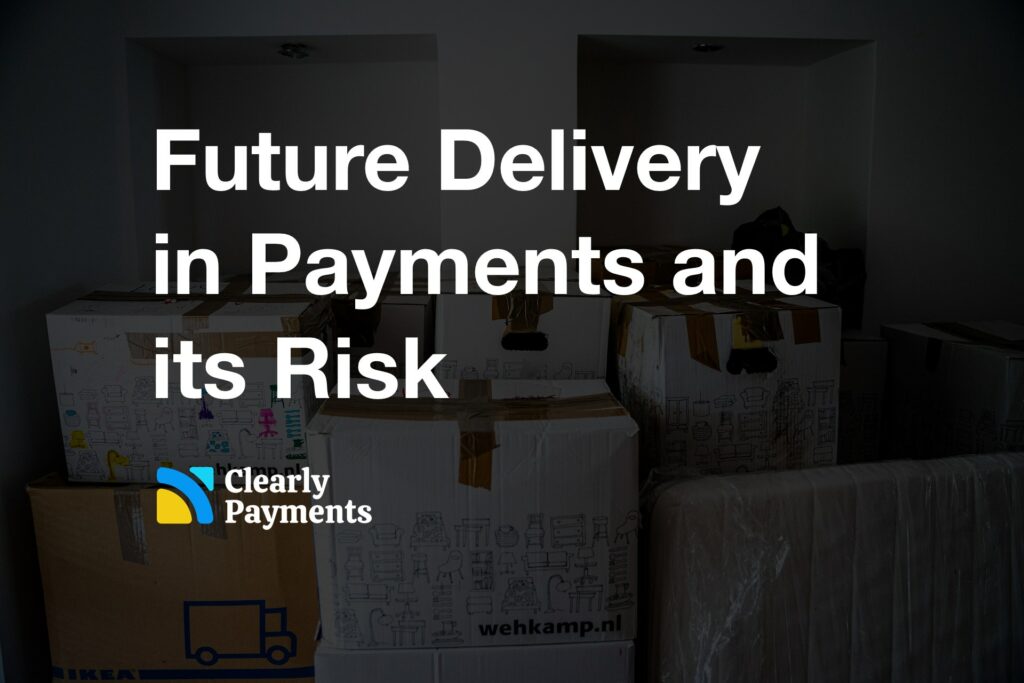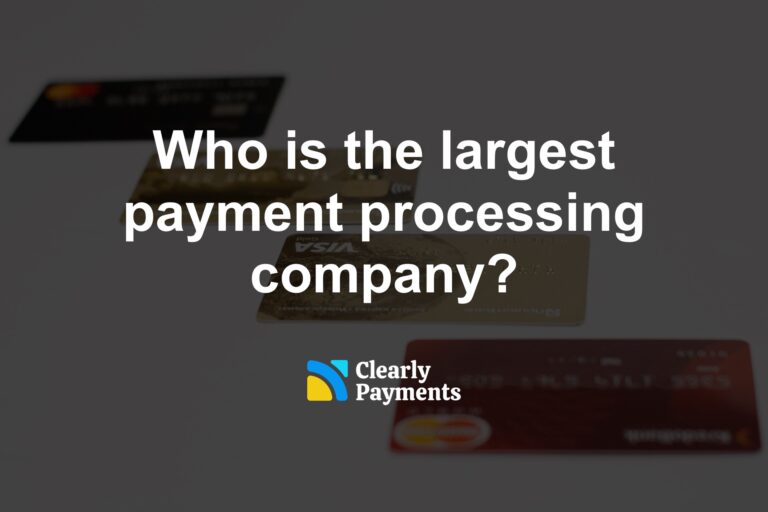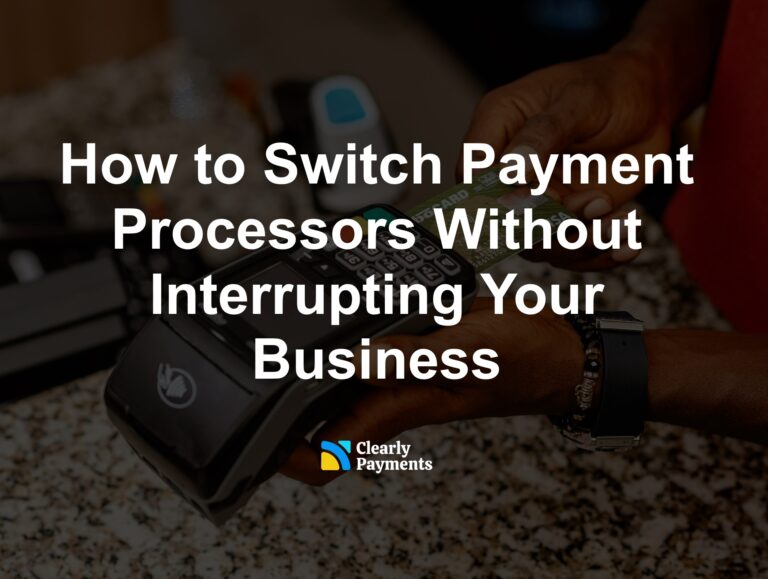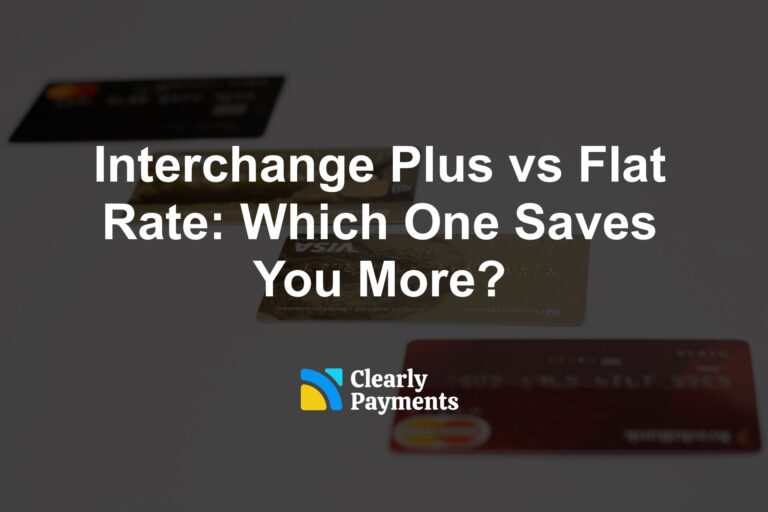Future delivery allows customers to purchase goods or services that will be delivered at a later date. This approach offers convenience and flexibility to both merchants and consumers, enabling transactions even when immediate availability is not possible. However, while future delivery presents numerous advantages, it also introduces unique risks that businesses and payment processors must navigate to ensure a smooth and secure payment processing experience.
This article explores future delivery in payments and the associated risks that merchants and payment processors need to consider. From default risk and customer disputes to payment security concerns, we will examine how future delivery impacts the broader payment processing landscape.
What is future delivery in credit card processing?
A merchant that has future delivery refers to a business that accepts payments from customers for goods or services that will be delivered or fulfilled at a later date. It means that customers make a payment upfront, usually using methods like credit cards, for products or services that are not immediately available or ready for delivery. The merchant acknowledges the payment and commits to providing the goods or services to the customer within the agreed-upon timeframe or upon completion.
The concept of future delivery implies a gap between the payment transaction and the actual fulfillment or delivery of the purchased items. This can occur in various industries and business models, such as pre-ordering products, subscribing to services, booking travel arrangements, or ordering customized or made-to-order items. The merchant assumes the responsibility of ensuring the timely and satisfactory delivery of the goods or services to the customer based on the terms and conditions agreed upon during the transaction.
Here are some examples of merchants that commonly engage in future delivery transactions:
Event Ticketing Platforms: Ticketing platforms that sell tickets for concerts, sports events, or theater shows often accept payments for tickets well in advance of the event date. Customers purchase tickets with their credit cards, and the actual delivery of the tickets occurs closer to the event date.
Customized or Made-to-Order Products: Merchants that create customized or made-to-order products, such as furniture manufacturers or jewelry designers, may require customers to make a payment upfront before initiating the production process. The delivery of the final product takes place at a later date.
Travel and Accommodation Providers: Airlines, hotels, and travel agencies frequently engage in future delivery transactions. Customers book flights, hotel stays, or vacation packages, and the payment is made in advance, with the actual travel or stay occurring at a later date.
These are just a few examples, and there are various other industries and businesses that engage in future delivery transactions. The common thread among these merchants is that they accept credit card payments for goods or services that will be delivered or fulfilled beyond the time of the payment transaction.
Future delivery and chargebacks
Future delivery can have a significant impact on chargebacks in credit card processing. The time gap between the transaction and the actual delivery of goods or services creates a higher risk of customer disputes. Customers may change their minds, encounter issues with the delivered items, or feel that the merchant did not fulfill their contractual obligations. This often leads them to initiate chargebacks to request refunds from their credit card issuers.
Resolving disputes related to future delivery can be more complex and time-consuming than those for immediate delivery, as they involve assessing the fulfillment of obligations and the quality of goods or services. Additionally, the extended timeframes in future delivery transactions can complicate the chargeback process, as customers may only discover issues or become dissatisfied after the expected delivery date. The time-limited nature of chargeback rights may result in chargebacks being initiated outside the standard timeframe.
Furthermore, future delivery transactions carry a higher risk of fraud-related chargebacks. Fraudsters may exploit the time gap to engage in fraudulent activities, such as using stolen credit card information to make a purchase and then disputing or canceling the transaction before the delivery occurs.
To manage the impact of future delivery on chargebacks, merchants should communicate clearly with customers about delivery timelines and establish transparent refund policies. They should also maintain comprehensive documentation, providing proof of delivery, tracking information, and any communication with the customer. Proactive customer support is essential to promptly address inquiries and concerns, thereby minimizing the likelihood of chargebacks resulting from miscommunication or dissatisfaction.
Additionally, implementing fraud prevention measures is crucial. Merchants should utilize fraud detection and prevention tools to identify and mitigate potential fraudulent transactions before they result in chargebacks.
The risk associated with future delivery
Future delivery can have an impact on risk in payment processing, primarily due to the time gap between the payment and the actual delivery of goods or services. Here are a few ways future delivery can influence risk:
Default Risk: When a customer places an order for future delivery and makes a payment in advance, there is a risk that the seller may default on the delivery. This could occur if the seller goes out of business, experiences financial difficulties, or fails to fulfill the contractual obligations. In such cases, the payment processor is typically at risk for the lost funds.
Chargebacks and Disputes: Future delivery can lead to increased potential for disputes and chargebacks. Customers may change their minds or encounter issues with the delivered goods/services. Since the payment was made in advance, they may seek refunds or chargebacks if the delivered items do not meet their expectations or if they believe the seller breached the agreement. Resolving such disputes can be time-consuming and may involve additional costs for the payment processor.
Payment Security: With future delivery, payment processors may need to implement additional security measures to safeguard customer payments. This includes ensuring the payment information is securely stored and protected from unauthorized access. The risk of data breaches or fraudulent activities may increase due to the extended period between payment and delivery, potentially exposing sensitive customer information.
Cash Flow Management: For businesses, future delivery can impact cash flow management. They receive payments in advance but need to cover the costs associated with the goods or services, including production, storage, or other operational expenses until the delivery occurs. If there are delays in delivery or unexpected costs arise, it can put strain on the business’s cash flow, potentially affecting their ability to fulfill their obligations.
Market Volatility: Future delivery may also expose businesses to market volatility. For example, if the cost of raw materials or production inputs increases significantly between the time of payment and delivery, the business may face financial challenges in fulfilling the order without incurring losses. Fluctuations in currency exchange rates, interest rates, or other market factors can also affect the profitability of future delivery transactions.
To mitigate these risks, payment processors, sellers, and customers can adopt various measures such as clear contractual agreements, insurance coverage, robust dispute resolution mechanisms, secure payment processing systems, and diligent monitoring of the delivery process.
Future delivery might require funding reserves
The likelihood of reserves being imposed on merchants with future delivery can vary depending on several factors, including the payment processor’s policies, the industry, the merchant’s risk profile, and the specific terms of the agreement between the payment processor and the merchant.
Reserves in payment processing refer to funds held by a payment processor as a security measure against potential risks and losses. The most common type of reserve in payment processing is a rolling reserve. A rolling reserve involves withholding a percentage of a merchant’s daily or weekly sales for a certain period of time. For example, a payment processor may hold back 10% of the merchant’s sales for a rolling reserve period of 90 days. As new transactions are processed, the rolling reserve is continuously adjusted based on the predetermined percentage.
For merchants involved in future delivery, payment processors may perceive an increased risk due to the extended period between payment and delivery, as well as the potential for customer disputes or cancellations. Consequently, payment processors may be more inclined to impose reserves on such merchants to protect themselves from potential financial liabilities.




